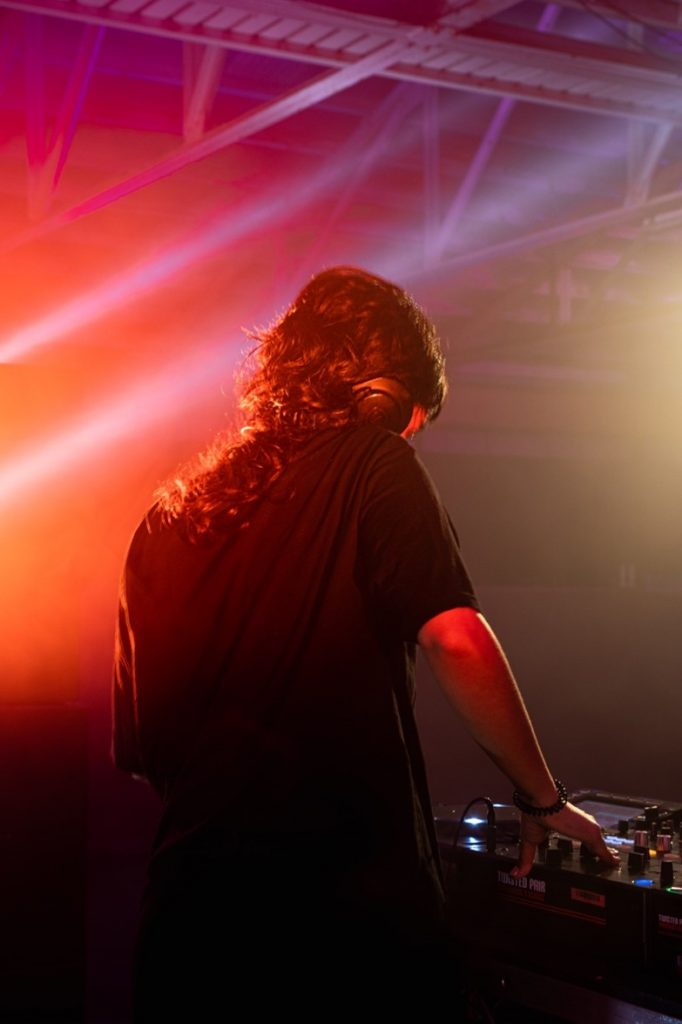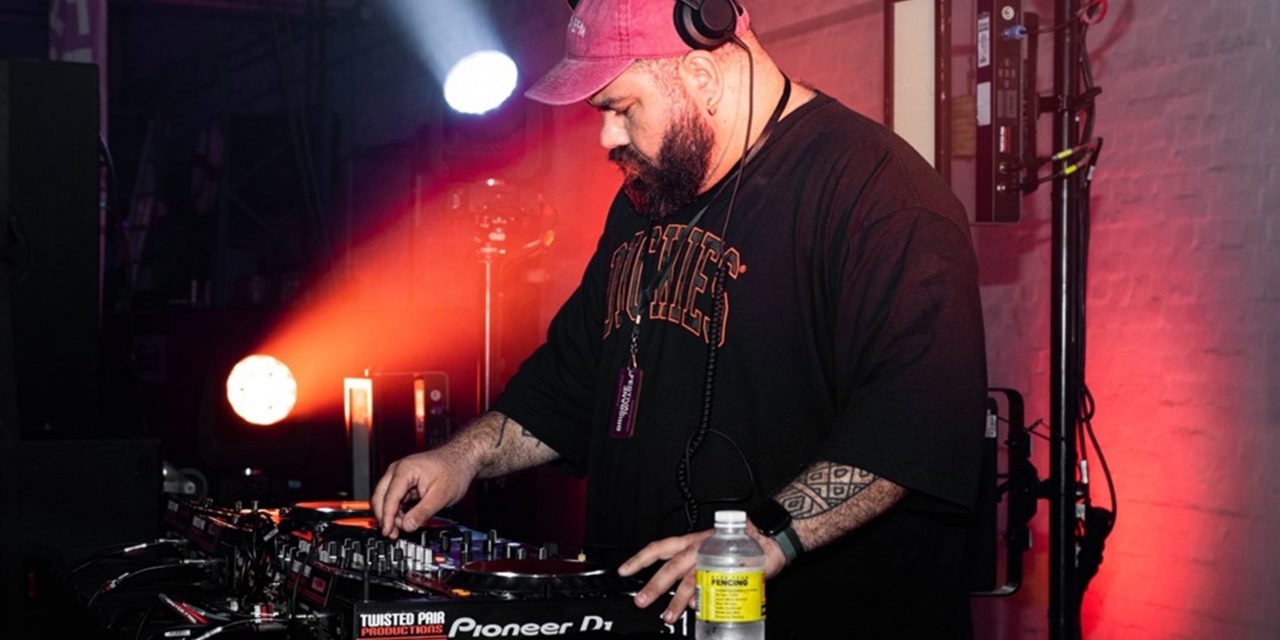For this year’s Brisbane Festival, the revitalised Brisbane Street Serenades program played host to a diverse and exciting range of mini-concerts and pop-up festivals across Meanjin/Brisbane.
I was lucky enough to go along to BLAK Warehouse Party – a family friendly celebration of First Nations electronic dance music and culture.
Taking place on 9 September at The Paint Factory in Yeronga, the event featured a charged line-up featuring artists such as DJ pgz, DJ Kritty, Sovblkpssy, Dameeeela and more.
Event organisers at Blak Social perfectly paired the evening’s entertainment with food and drink catering from Sobah Drinks and Lenny’s Indigenous Mobile Kupmurri Catering Service.
Simply put, BLAK Warehouse Party was great.
Although “family-friendly” doesn’t typically appear in the list of adjectives used to describe the club music genre, Blak Social seamlessly blended the electrifying sounds of some of Australia’s most exciting EDM artists with impeccable stage lighting, and a laid-back, authentic community atmosphere.
The free event drew revelers of all kinds, with more than a few young families bopping their heads in the front row.

The importance of Indigenous cultural enterprises.
This microcosm of creativity and community captured the essence of what Brisbane Festival is all about.
However, for Alethea Beetson, a Kabi Kabi and Wiradjuri artist, and Blak Social Creative Director the event is significant in championing First Nations representation within the broader Brisbane Festival.
Beetson is no stranger to facilitating First Nations storytelling and in addition to her own creative practise, has long been working in developing Indigenous artistry across music, poetry, dance, and theatre.
After founding non-profit youth arts organisation Digi Youth Arts in 2013, Beetson formed Blak Social to provide a platform for more developed artists, which suited larger audiences.
With theatre works and music events like ‘Blak Day Out,’ Blak Social is a trail blazing collective on Brisbane’s scene.
Given the success of Indigenous EDM artists like DJ pgz and Dameeeela, who have achieved global reach through club music giants like BoilerRoom, the opportunity to celebrate this scenes achievements with Brisbane audiences couldn’t be missed.
“First Nations dance music is having such a big moment,” Beetson explains.
“This was an opportunity for an all-ages gig in so called Brisbane for the whole mob and wider community to come celebrate what First Nations dance artists are doing in the scene at the moment.”
However, the increasing demand for Indigenous cultural output – particularly in popular music – comes with the need to ensure that Indigenous representation is neither tokenistic, nor appropriative, and empowers First Nations people as both artists and organisers.
“If other spaces, like major festivals aren’t setting up processes where they’re finding ways to just hand over the keys or the space to First Nations people, it can lead to tokenistic representation,” says Beetson.
However, Beetson highlights the larger need for sufficient funding for First Nations cultural endeavours, with an equal need for resourcing to be effectively allocated to empower First Nations owned and run artistic enterprises.
“We’re still seeing folks within the music industry in particular, large music labels that have a healthy revenue, take black funding from elsewhere to create programs.”
“That should be for Black owned businesses, so we can develop those opportunities for us, by us and about us,” says Beetson.
“I understand a lot of those resources are coming from capitalistic structures, and that needs to be burned down.”
“However, as we’re rebuilding these spaces I think when there is an opportunity to fund First Nations spaces, we need to be looking to those First Nations businesses that are doing the work.”
As Beetson notes, increasing the allocation of resources, and representation of First Nations artistry is incredibly important for Australia’s cultural landscape and catalyses a larger, profoundly cathartic cultural process of reclamation of identity and country through storytelling.
“Non-Indigenous spaces need to understand their lane, and their role in it, and where they’re putting their investment. And they need to give as much space to us as possible and understand that we are on a journey of reclamation and journey of healing”
“We’re just doing what we’ve always done on these lands,” Beetson reminds us.
Alethea Beetson’s play “Queens City” will be showing next week.
Tickets can be purchased here
For more information on Blak Social head here
See the Brisbane Festival events calendar here
Cover image DJ pgz by @jrdh__


